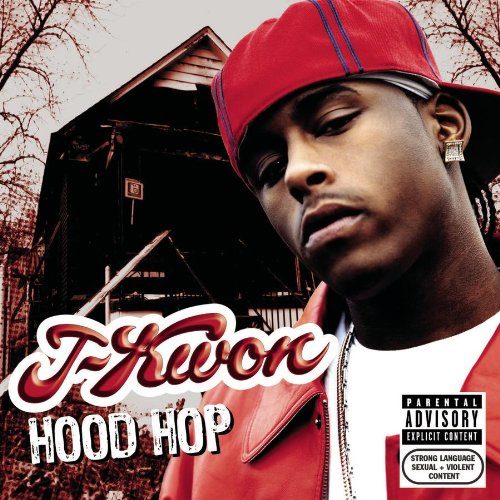For struggling hip-hop artists, it must seem like bitter irony when years of dues are paid with no big hit single or national exposure while teenagers like J-Kwon blow up on the strength of just one song. His smash hit “Tipsy” is a raucous ode to imbibing too much alcohol, made all the more perplexing by the fact he’s not legally old enough to touch the stuff. Well, perplexing to the Joe Lieberman’s and Tipper Gore’s of this world, at any rate. Speaking only for this reviewer but perhaps also for the millions of college students across the United States, it’s not only easy to drink under the age of 21 but often EXPECTED. The law in this case contributes to the problem, making alcohol the supposedly forbidden fruit and thus making it more of a guilty pleasure to consume it and “break the law” as a show of rebellion and a desire to be part of the fun and action. In any social environment where young adults who can legally drink and those who can’t mix, underage drinking is bound to happen. That’s not an endorsement, it’s just a statement of fact.
Whatever you think of teenage drinking, social policy (I think a more sensible European approach to drinking laws would curb a lot of wreckless behavior) or J-Kwon himself, the fact remains that “Tipsy” is number one with a bullet just about anywhere you go – clubs, the radio, music television and so on. Now Kwon is charming enough as an MC, having that St. Louis style flair in his voice and the associated tendency to pronounce “urr” instead of “ere” anywhurr possible. That’s part of what makes the hook of Kwon’s song so catchy – the refrain “Now URR-body in the club gettin tipsy!” is memorable and designed to spawn a lot of sincere flattery in it’s imitation. It’s no wonder that Kwon has this sound when you consider that he IS from the 3rd District of the Lou’ and that the TrackBoyz are from Missouri as well. Mark Williams (Tarboy) and Joe Kent (Jo Capo) actually strayed from the tradition St. Louis sound for “Tipsy” though, creating something that on closer inspection is eeriely reminiscent of “Grindin'” by The Clipse. Combine that beat with Kwon’s carefree lyrics, and it’s a sure recipe for success:
“One, here comes the two to the three to the four
Urr-body drunk out on the dance floor
Baby girl ass jiggle like she want more
Like she a groupie and I ain’t even on tour
Maybe cause she heard that I rhyme hardcore
Or maybe cause she heard that I buy out the stores
Bottom of the 9th and a nigga gotta score
If not I gotta move on to the next whore
Here comes the three to the two to the one
Homeboy trippin he don’t know I got a gun
When it come to pop, well we do shit for fun
You ain’t got one? Nigga you better run Now I’m in the back getting head from a hun
While she goin down I’m braggin on what I done
She smokin my blunt saying she ain’t havin fun
Bitch give it back now you don’t get none!”
Misogynistic, drug-fueled and boisterous, Kwon runs through the verses like a track star, counting up and counting down in each one to keep the theme. To keep things strong, Kwon and executive producer Jermaine Dupri lined up some guest stars to lend a hand in the mix. The St. Lunatics appear on “IC IC,” Big B appears on “U Ain’t Gotta Like Me,” and Dupri himself appears on the piano heavy track he produced, “My Enemies.” Trina wannabe Eboni Eyes raps on “Show Your Ass,” and for some R&B crossover support newcomer Sadiyyah sings on “You & Me.” Kwon’s album tries hard to cover all the bases, reminiscing (yes – at his age) on the past on “They Ask Me,” proclaiming his allegiance to his roots on the old school (yes – at his age) tinged “Welcome to Tha Hood” complete with a “Rockin’ It” sample, and promising to floss and bang (yes – at his age) on “Parking Lot.”
In fact, it has to be said that like a lot of the young rappers Jermaine Dupri’s name has been associated with before now, J-Kwon comes across sounding like a carefully packaged product designed specifically to go over with his target audience. In fairness that’s no fault of Kwon’s. He’s young, he’s in an industry full of thieves and sharks, and he’s doing the best he can all while trying to get over and (hopefully) make a little bit of money to do good for himself, his neighborhood and his family. The problem with making an album as formulaic as “Hood Hop” though is that it guarantees Kwon success in the short term, but doesn’t necessarily carve him out a niche in hip-hop music long term. Kwon himself admitted in a recent interview with the St. Louis Post-Dispatch that there were dangers ahead. “That St. Louis thing is starting to die down,” said Kwon. “It’s getting used too much.” Unfortunately Kwon’s album sounds not like a response to that problem, but a symptom OF it. For his sake, I hope “Tipsy” doesn’t turn him into a one-hit wonder, because there’s not much else on “Hood Hop” to sustain his career.

